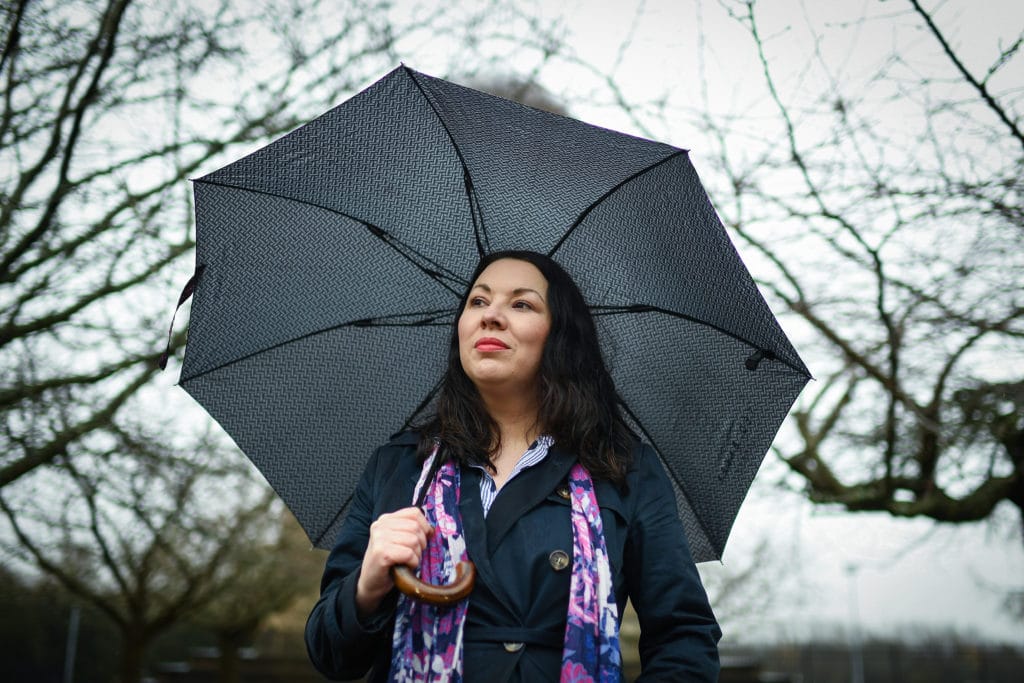‘The SNP has failed trans people. If elected Scottish Labour leader, I’ll stand shoulder-to-shoulder with the community’

Scottish Labour MSP and party leader hopeful, Monica Lennond. (Jeff J Mitchell/Getty Images)
Politician Monica Lennon writes for PinkNewson why she thinks that LGBT+ Scots should vote for her to be the leader of the Scottish Labour Party ahead of ballots closing Friday (26 February).
This LGBT+ History Month, I am reflecting on how far we have come in the fight for LGBT+ rights and the struggles that still lie ahead.
As a proud ally and intersectional feminist, I understand what it takes to challenge the structures of privilege and power that are so embedded in our society and I will always stand in solidarity with the LGBT+ community in that fight.
I am standing to be the leader of Scottish Labour because I believe in a clear vision for a fairer Scotland – one where every LGBT+ person feels free to be themselves.
We still have work to do in our society to break down barriers and transform institutions and workplaces to be more inclusive and accepting. I have set out my key pledges which you can read here and will work closely with you to ensure our movement leads the way in delivering the change we all want to see.
My ambition is to restore Scotland’s place as a global leader in equality for all.
From fighting Section 28 to civil partnerships, Labour is a party for LGBT+ rights, says Monica Lennon
In my first term in parliament, I brought together political parties and activists from across Scotland to tackle period poverty and introduced world-leading legislation that saw Scotland becoming the first nation in the world to ensure free access to period products for all.
My politics is about delivering practical change that improves people lives and, as Scottish Labour leader, I want to bring that same determination to protecting the rights and dignity of the LGBT+ community in Scotland.
Growing up I was all too aware of the discrimination enshrined in law and society.
Section 28 of the Local Government Act 1988 in Scotland, England and Wales, banned local authorities from intentionally promoting homosexuality or publishing material with the intention of promoting homosexuality and further, it banned the teaching of the acceptability of homosexuality as a pretended family relationship.

Monica Lennon. (Jeff J Mitchell/Getty Images)
I am proud of Scottish Labour’s role in fighting against the vicious “Keep the Clause” campaign.
Overturning the hateful and regressive words enacted through Section 28 was one of the first pieces of legislation passed by the Scottish Parliament in 2000, and three years later the UK Labour government followed suit.
The “Clause”, as it was known in Scotland, was not only deeply damaging at the time, it continued to have a serious impact on our education system and the lives of young LGBT+ people decades after it was abolished.
That is why campaigns like Time for Inclusive Education (TIE) have been so important in changing attitudes and ensuring that Scotland’s education system is fit for a modern, diverse and inclusive society.
I led a debate in parliament on the TIE campaign and I am glad that progress is being made. Before lockdown, I had the pleasure of hosting an LGBT Youth Scotland parliamentary reception attended by more than 300 people on the legacy of Section 28.
The performances and speeches reminded us that in our fight for equality, we can change our laws and win hearts and minds too.
Labour equalised the age of consent, we outlawed discrimination against LGBT+ people in goods and services, we brought in the Human Rights Act and we legislated for civil partnerships, putting the UK on the road to full marriage equality.
In opposition, I have a track record of leadership on these issues, bringing charities and civil society across Scotland together.
Monica Lennon: ‘It is disappointing that the SNP has failed to make progress on the GRA’
But I know that this isn’t enough.
As Scottish Labour’s health and social care spokesperson I have consulted widely on trans healthcare and seen that fear and discrimination can wear many masks.
There are so many issues still to be resolved – especially for trans people in Scotland and throughout the UK.
I have spoken out to condemn the transphobia that so many trans and non-binary people face on a daily basis. I believe that we have a duty to stand by those who are being unfairly marginalised, and I will stand by the trans community now.
As a feminist and LGBT ally this makes me sad, angry and determined. Transphobia is dangerous and is harming all women.
Thank goodness we fought for LGBT inclusive education in this country because we need it, not just in our schools, but everywhere. https://t.co/zy5fY8NUMg
— Monica Lennon MSP (@MonicaLennon7) June 30, 2019
I am proud that former Scottish Labour leaders Kezia Dugdale and Richard Leonard were both committed to Gender Recognition Act (GRA) reform.
Like them, I support changes to the GRA. Trans people should not have to go through a bureaucratic and dehumanising process to have the law recognise who they already are.
It is disappointing that SNP ministers have failed to make progress on this.
Worryingly, we have seen reporting of hate crimes rise. We must tackle this head-on through education, policing and support.
With COVID-19, we have seen many people having to stay with, or apart, from families and I know this poses unique challenges to LGBT+ people who might not be out to their families or may have to live in situations where they are not accepted.
We must have funding and services to support LGBT+ people in this situation.
The financial and mental health harms of the pandemic have presented additional challenges to many LGBT+ people.
Economic inequality, discrimination against women and prejudice against black, Asian and minority ethnic people are part of the same struggle that LGBT+ people face. I believe we must all come together and stand shoulder to shoulder.
Monica Lennon gives ten pledges to make Scotland ‘fairer’ for LGBT+ people
If elected as the next leader of the Scottish Labour Party, I am committed to building to build a movement for equality and dignity for everyone in Scotland, but I will also work with Keir Starmer to take this fight to every corner of the UK.
Just a few years ago Scotland was scored as one of the highest-rated nations in Europe for LGBT+ rights, but in recent years it has slipped, and I want to put it back in its rightful place.
I have shown as an intersectional feminist that I can put Scotland on the map for gender equality and I will do the same for LGBT+ rights, with a clear vision for a fairer Scotland:
- Make Scotland the best place to be a young LGBT+ person.
- Investment in LGBT+ inclusive education with sustainable funding for charities like TIE to ensure work to implement inclusive education continues within schools.
- Improved mental health services for young LGBT+ people including training for professionals to better understand the experiences of LGBT+ young people.
- Reform of the Gender Recognition Act to remove the requirement for a psychiatric diagnosis and bring the gender recognition process in line with international human rights standards.
- Legal recognition for non-binary people.
- Investment in gender identity clinics to bring down referral-to-treatment wait times and include gender dysphoria in NHS waiting time targets.
- A criminal ban on conversion therapy that includes provision, advertising, causing a person to undergo conversion therapy and removing a minor from Scotland to undergo conversion therapy.
- A public complaints mechanism for reports of conversion therapy and better support for survivors.
- A commitment to Generation Zero: a Scotland that has zero new HIV transmissions, zero preventable HIV-related deaths, zero HIV-related stigma and 100 per cent quality of life for people living with HIV in the next 10 years.
- Inclusive workplaces where all LGBT+ employees are accepted without exception.
As with all comment articles, this does not necessarily reflect the views of PinkNews.

